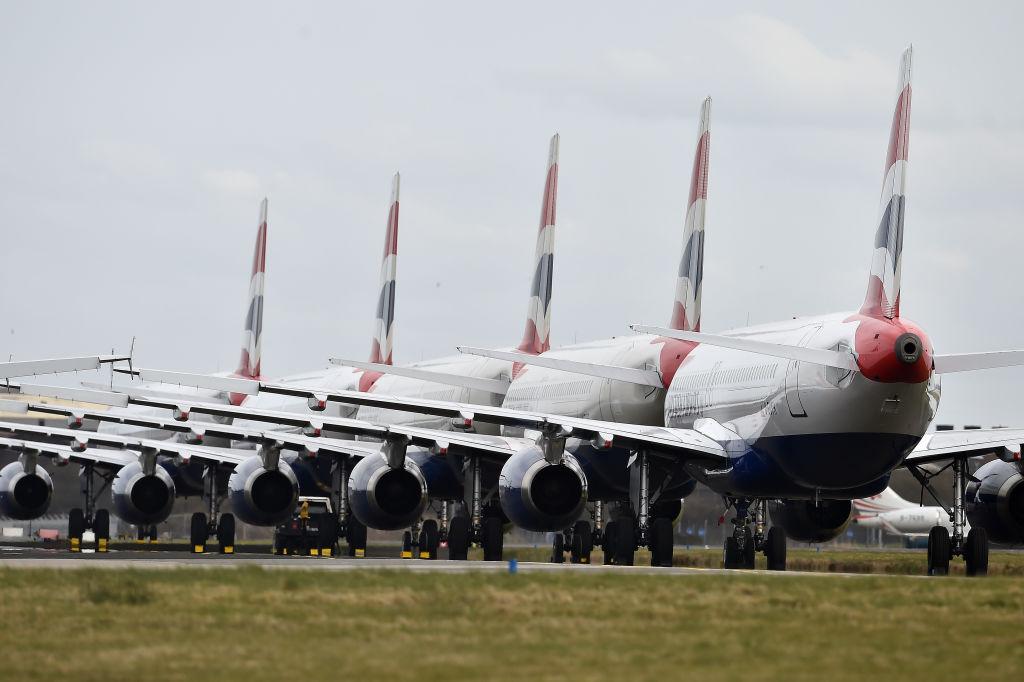Coronavirus: Air travel suffers sharpest decline in demand since 9/11
Coronavirus ‘is the biggest crisis that the industry has ever faced’ according to International Air Transport Association

Your support helps us to tell the story
From reproductive rights to climate change to Big Tech, The Independent is on the ground when the story is developing. Whether it's investigating the financials of Elon Musk's pro-Trump PAC or producing our latest documentary, 'The A Word', which shines a light on the American women fighting for reproductive rights, we know how important it is to parse out the facts from the messaging.
At such a critical moment in US history, we need reporters on the ground. Your donation allows us to keep sending journalists to speak to both sides of the story.
The Independent is trusted by Americans across the entire political spectrum. And unlike many other quality news outlets, we choose not to lock Americans out of our reporting and analysis with paywalls. We believe quality journalism should be available to everyone, paid for by those who can afford it.
Your support makes all the difference.Air travel has experienced the steepest decline in demand since the terror attacks of 9/11 according to the latest figures released by the International Air Transport Association (Iata).
Iata said in its latest report on global passenger traffic that demand in February 2020 fell by 14.1 per cent compared to February 2019.
This figure was skewed by China, which faced “collapsing domestic travel”, with demand falling by 83.6 per cent.
Asia-Pacific as a whole was also heavily impacted. Demand on flights to, from and within the region fell by 41.3 per cent due to coronavirus, as well as travel restrictions imposed by governments.
Africa also saw a fall in demand by 0.7 per cent.
In contrast however, North America, Latin America, the Middle East, and Europe actually saw a slight increase in demand of 5.5 per cent, 3.1 per cent, 1.7 per cent and 0.7 per cent respectively compared to the previous year.
As a sign of things to come, Iata said that despite airlines axing flights across the board to reflect the plunging traffic – global capacity fell by 8.7 per cent in February – planes only had a load factor (the number of people on board) of 75.9 per cent, falling by 4.8 per cent compared to the same time last year.
But even this is likely wiped out in March 2020, with airlines reporting no new bookings and only cancellations.
EasyJet, for example, has grounded its entire fleet. Ryanair, which announced in March that there would be no more flights until June, is now operating a handful of flights as part of a skeleton service. And British Airways has furloughed 36,000 staff as it deals with its extensive cancellations.
Alexandre de Juniac, Iata’s director general and CEO, said: “Airlines were hit by a sledgehammer called Covid-19 in February.
“Borders were closed in an effort to stop the spread of the virus. And the impact on aviation has left airlines with little to do except cut costs and take emergency measures in an attempt to survive in these extraordinary circumstances.
“The 14.1 per cent global fall in demand is severe, but for carriers in Asia-Pacific the drop was 41 per cent. And it has only grown worse. Without a doubt this is the biggest crisis that the industry has ever faced.”
In its latest estimate at the end of March, Iata predicted the global air travel industry will lose £211bn this year.
This is more than double of the £87bn figure it had predicted at the beginning of March.
Join our commenting forum
Join thought-provoking conversations, follow other Independent readers and see their replies
Comments